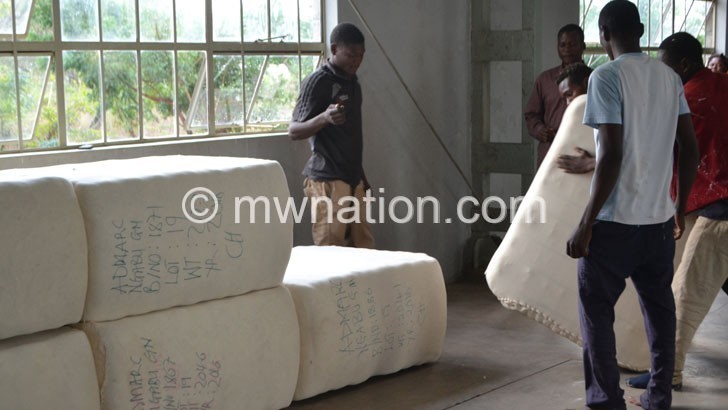‘Malawi not ready to ban second-hand clothes’
Cotton Council of Malawi says Malawi is not ready to ban importation of second- hand clothes (kaunjika), saying the local cotton industry cannot support the textile industry.
The council’s statement follows claims by some traders and cotton growers that the importation of second-hand clothes has contributed to the dwindling cotton output as the textile industry is also fading.

The council’s executive director Cosmas Luwanda said in an interview on Wednesday that Malawi is not ready to ban importation of second-hand clothes, because the local textile industry is insignificant to offset the national clothing needs.
“I don’t think that second-hand clothes are affecting the country because the ginning capacity that we have is in excess of 600 000 metric tonnes (MT).
“If farmers grew that amount of cotton seed then we could be able to export that or use in our textile production value chains,” he said.
Luwanda said since the country has such production inadequacies, it means the market is open in view of the current output hovering around 15 000MT.
“So, we are far from claiming our maximised production. Our demand for cotton and cotton products remains quite huge despite second-hand clothes coming into this country.
Africa Institute for Corporate Citizenship (Aicc) chief executive officer Felix Lombe, whose institution is advocating for the revamping of the cotton industry, said banning second-hand clothes is counter-productive.
“When you talk to some players in the textile industry, they will tell you that let us ban the importation of second-hand clothes, but the truth is that we do not have anything on the ground to offset the needs.
“Until we have a vibrant textile industry, that is when we can say let us consider banning importation of second-hand clothes,” he said.
Lombe said Rwanda and Kenya banned importation of second-hand clothes because their textile industries are vibrant and able to suffice national needs.
Ministry of Industry, Trade and Tourism spokesperson Mayeso Msokera noted that banning of products, including second-hand clothes can only be considered by balancing the interests of both traders and consumers.
He said government is working with the private sector players to bust illegal importation of second-hand clothes.
In an earlier interview, agriculture expert Tamani Nkhono- Mvula, argued that cotton remains a poverty panacea for rural Malawi, but suggested that the whole value chain needs to be re-examined.
The National Export Strategy recognised the potential of the cotton sector to generate foreign exchange and providing employment.





